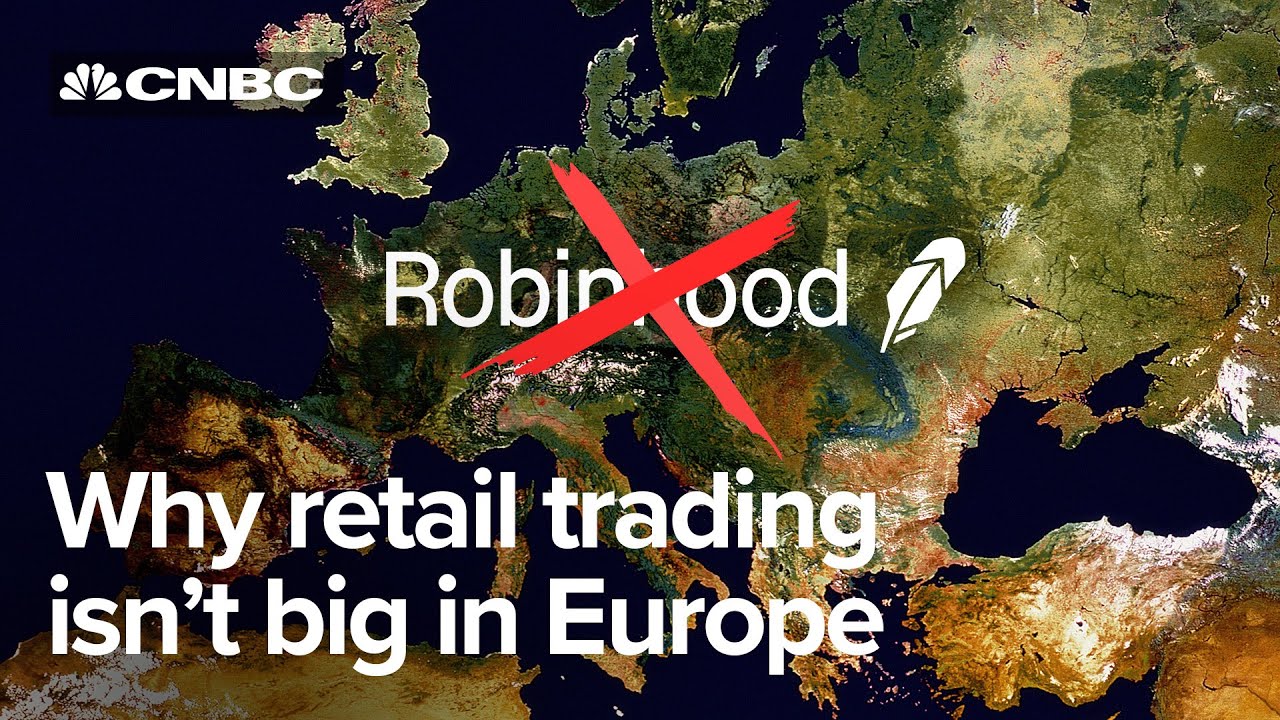Why Retail Investing Has Taken Off In The U.S. - But Not Europe
Unleash Your Creative Genius with MuseMind: Your AI-Powered Content Creation Copilot. Try now! 🚀
In the world of finance, investors can be neatly divided into two distinct categories: institutional and retail. Think of institutional investors as those who buy flowers in bulk from farmers, making large-scale investments on behalf of their clients. It's their full-time job, much like a florist's daily routine. On the other hand, retail investors are like individuals purchasing a bouquet of tulips with their own hard-earned money, often requiring the assistance of a middleman. The world of finance has witnessed significant changes, much like online flower delivery services making it easier to get your favorite blooms. Thanks to platforms like Robinhood, the accessibility of financial markets has never been more enticing.
The Transatlantic Divide: Why Europe Lags Behind
While the United States has witnessed a boom in retail investing, the situation in Europe remains quite different. American households boast ownership of a staggering $38 trillion worth of equities, directly or indirectly, representing almost 60% of the entire U.S. equity market. So, why hasn't Europe caught up?
I had the pleasure of speaking with Christian Hecker, the co-founder of Trade Republic, an online broker based in Germany. He pointed out that structural differences between the U.S. and European markets play a significant role. One crucial distinction is the absence of a 401(k) structure in Europe. Unlike traditional pensions, which guarantee a fixed income in retirement, a 401(k) relies on individual contributions and investment choices. This means that responsibility falls squarely on the shoulders of the individual, rather than the state, a concept more common in the U.S.
With Europe lacking this retirement-focused structure, savers often have little direct interaction with stock markets. Instead, they rely on statutory or state pensions, leaving investment decisions in the hands of governments or large financial institutions. Moreover, there's a perception among retail investors that accessing capital markets is reserved for the wealthy, necessitating a shift in mindset.
Europe's Quest for Retail Investment Enlightenment
Europe has seen a growing interest in retail investment since 2020, but it still lags behind other regions. Research indicates that retail activity contributes only 5-7% of total trading volume in Europe, in stark contrast to over 25% in the U.S. and over 60% in China. Despite these challenges, several European start-ups, including Revolut, Trading 212, Freetrade, and Trade Republic, have emerged to seize the opportunity. These platforms often offer zero-commission investing and employ gamified features to stimulate participation.
Eric Liu, an analyst at Vanda Research, emphasized that Europe stands at a crossroads. With the traditional state pension system proving inadequate, millions of Europeans are exploring capital markets for the first time to bridge the pension gap. Could this newfound enthusiasm be the catalyst for a retail investing boom in Europe?
Regulatory Challenges and the Pandora's Box
While the digital transformation has brought retail investors closer to capital markets, it's not without challenges. European policymakers and regulators are particularly concerned about "payment for order flow," a model that underpins the likes of Robinhood. This model, which involves a middleman company, known as a 'market maker,' profiting from executing trades, has made trading affordable and accessible.
However, regulators argue that it introduces conflicts of interest, potentially harming the interests of retail traders. Policymakers must strike a balance between encouraging new investment tools and protecting investors.
But one key question looms: If Europe were to ban the payment for order flow model, could a platform like Robinhood still thrive in the region? And even without it, is retail investing here to stay in Europe?
Ugo Bassi, a top official for the European Commission's financial services unit, stressed the importance of trust and flexible rules. The digital revolution in finance offers opportunities, but it must be kept under control.
In conclusion, Europe is on the brink of a significant shift in retail investing. The landscape is evolving, and the enthusiasm of European retail investors is undeniable. While challenges remain, the genie is out of the bottle, and the future of retail investing in Europe appears promising. As Europe continues to embrace this new era, it will be exciting to watch how retail investing blooms and transforms the financial landscape on the continent.

Related Recaps
- Texas shooting: Suspected mass shooter Francisco Oropesa captured after 4-day manhunt, DA says
- OPENING ALL PASSWORD LETTERS in NEW MAP 😮 PUBG Metro Royale
- KANGUKA DE SAMEDI LE 22/04/2023 par Chris NDIKUMANA
- Legend of Slime - How To Bypass LIAPP ALERT ( New Method )
- The Real Reason Dogs "Smile" Is Scary